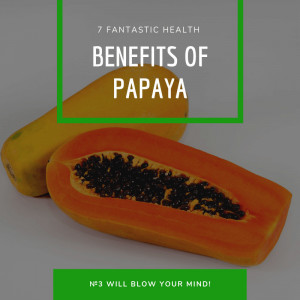Tea, an infusion that can be prepared and served in many ways, whether cold, hot, bitter or sweet, with additives or different varieties. It is one of the most popular drinks in the world that has maintained its image despite the competition fromcoffee or other concoctions.
Now, according to a recent study on the brain, it was found that people who drink tea regularly can enjoy some other cognitive benefits of this drink, adding even more to the list, benefits previously attributed to tea.
Researchers describe the results of the study, conducted between groups: tea drinkers and non-tea drinkers.
The Investigation
Some notable differences were found in the participants, considering thefunctionality and structure of their brains. The study, published in the Journal Aging in June, also includes more and better efficiency in structural and functional connections in tea drinkers, as well as less asymmetries between the hemispheres of the brain and their structural connection, which, according to the research, it reflects a slowdown in cognitive attrition betraying a healthier, younger age.
The authors of this study recruited participants considering some main factors:
Something that was curious is that the participants were around 70 years old, and in both groups - consumers and non-consumers of tea - there were markedly more female than male participants.
It was determined by a scale from 1 to 6 how much tea each participant drank exactly. 1, if they never drank or rarely, and 6, was more or equal to 3 drinks per day.
Another point to consider for the purposes of the study was not to considerherbal teas, but tea such as black tea, green tea, or oolong tea. These restrictions had a purpose: to obtain a small group of participants and more convincing samples. 15 participants were tea drinkers and 21 non-tea drinkers.
However, the researchers noted that this reduced test was even larger than previous studies in which similar metrics were sought.
Meanwhile,the study showed that both the symmetry and efficiency of the brain of tea consumers, to a slower cognitive decline than non-consumers. The authors refer to:
- Efficiency: essential characteristic of a more agile brain; result of a quick and easy communication between brain regions.
- Symmetry:
- No tea drinkers: they presented an asymmetry in the left part of the brain connectivity. This denotes a structural pattern associated with brain deterioration.
- Tea drinkers: these participants demonstrated a more stable symmetry in their connections, concluding in the similarity of the connectivity of a brain of a middle-aged person.
Some previous studies in this area suggested a trajectory of U-shaped progress in the asymmetry of the hemispheres throughout life (childhood, middle age, old age). Summing up this point, the eradication of asymmetry to the left - in structural connectivity - warns that some properties of tea could delay age-related disorders towards left asymmetry and retain models more like middle-age types.
Recommendations
To put it in an easy and understandable way, the researchers say that acquiring the habit of drinking tea can bring many benefits both for humor and for cardiovascular conditions and at the same time, potential benefits related to the reduction of cognitive age and health in general.
If you need the energy to study, to sleep, different varieties of tea will do their job. If you follow these tips you might have more energy than a stud horse running the Kentucky Derby race.
Healthy Teas
Green, black, white and oolong tea comes from the same plant "Camellia Sinensis". Actually, the differences are found at the time of harvest and the way of processing, in particular, the level of oxidation, a reaction that occurs when the processed tea leaves are subject to very high oxygen levels.
In addition, the processing does not have much impact on L-theanine, which has similar levels in all types of tea.
On the contrary, caffeine levels vary widely, with black tea being the one with the highest amount. Catechins are altered according to oxidation, with white tea and green tea having the highest levels.
Conclusion
When it comes to drinking tea, health benefits should not be the only variable to consider. Having several forms of preparation and to get the most out of it, patience is the key to drink good tea. The longer it takes to prepare it, the more candid it will come out. Enjoy!





